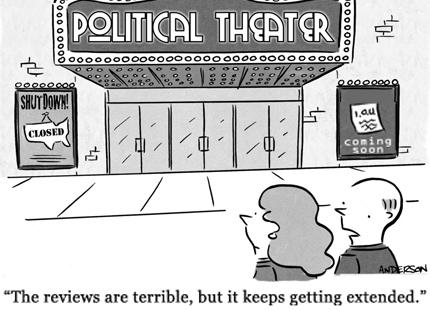The City of St. Pete Beach has been sued over how it has recently filled vacant commission seats. The facts of the situation show that many substantive issues have been created, perhaps even deliberately so as to muddy the waters. The Florida Supreme Court could end up deciding the matter.
If so, it would take the city back to an election 70 years ago in May, 1954. That dispute went all the way to the Florida Supreme Court, which said that the facts back then “reveal a condition of municipal chaos and uncertainty” in St. Pete Beach that they had to resolve.

Since that time, in more recent years, there have been several lawsuits filed by residents that the city lost, costing it millions of dollars. The present lawsuit proves that history may not repeat itself, but it rhymes.
The present dispute is over how to fill the aforementioned vacancies, which arose as 4 out of 5 city commissioners resigned rather than comply with more extensive financial disclosure requirements passed into law by the Florida Legislature. County commissioners and school board members, even mere candidates for such positions, have already had to fill out the form in question (the so-called form 6) for decade.
That also elected city officials should file form 6 has also been a legislative recommendation of the Florida Commission on Ethics since 2015. The goal with increased disclosure is to make sure that elected officials, also at the lowest level of municipal government that city government is, don’t have ethical conflicts involving their own financial interests as they vote on whether to approve huge real estate projects.
The St. Pete Beach commission will be voting on whether to approve at least three projects involving around $500 million dollars each. One such vote is scheduled for Wednesday, January 10th, a vote on the proposed redevelopment of the Sirata property.
The lawsuit brought by residents specifically mentions their Florida Constitutional right to elected municipal government (§14 of the lawsuit). Currently, a majority (3 out of 4 commissioners) are appointed. If the district 3 seat if also filled through appointment, there will be an 80% appointed (not elected) commission that votes on major real estate developments that greatly impact the quality of life of local residents.

City attorney Andrew Dickman has made several apparent mistakes in the tortured process of appointing (not electing) four new commissioners in the last month.
For example, Dickman repeatedly referred to a candidate running unopposed in district 3 in March as the “commissioner-elect,” despite this 1998 Florida Attorney General opinion which stated that a “candidate running for city commission….unopposed….is not considered to be elected until the election has been held. Therefore, the candidate is not a member-elect [i.e. commissioner-elect]…until” the election has been held.
Since being made aware of his “commissioner-elect” mistake, Dickman has not disputed that it was a mistake, or corrected the record. He also hasn’t provided any explanation for what seems like an attempt to confer special status upon that one person during the appointment process. Such special status is not warranted — all applicants were commission appointee applicants. Nothing more, nothing less.
The Sirata plan vote was slated for December 5th, while facing almost uniform opposition from residents. It was only after the Sirata vote that delayed until January 10th that the December 18th emergency meeting was called to discuss a possible resignation, followed by multiple actual resignations in a scheme to “stagger” resignations. The stated purpose was to avoid a special election, which was deemed an “impracticability” by the city attorney Dickman who has since said called his own term “an understatement.” Then why didn’t he state it correctly before the commission?
Where those commissioners planning to vote “yes” on the Sirata plan? When they realized they couldn’t do so before resigning at the end of 2023, did they then concoct this “staggered resignations” scheme to put in unelected placeholders to vote “yes” in their place? Having the first meeting to discuss it on December 18th, knowing that the Supervisor of Elections deadline for candidate qualification for a special election was December 19th.
As always….the Guardian reports and the readers decide. Please like our Facebook page to find out when we publish new stories.
READ ALL OUR REPORTING ON ST. PETE BEACH
UPDATE AND CORRECTION (Monday 1/8 at 9:00 AM); a previous version of this article incorrectly stated the date for the Sirata plan vote.


